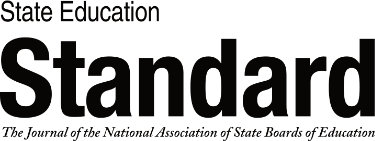When COVID-19 forced a hiatus in federally mandated assessments in spring 2020, it interrupted a quarter century of effort to track, disaggregate, and publicize achievement levels at the school level. The aborted school year put a big data gap where 2020 scores should have been. Combined with the already raging assaults on testing, state education leaders find themselves in a fraught and difficult place.
Test-Based Accountability in Distressed Times
Also In this Issue
States Experiment with Assessment through Innovative Pilots
By Joseph HedgerFive states received federal waivers for regular assessments so they could pilot assessment systems in select districts or schools over five years.
Performance Assessments: Promises and Pitfalls
By Marianne PerieBy learning from the past, state boards can add depth and relevance to their assessment systems.
We Should Listen to the Canaries
By Ellen ForteHow alternate assessments for students with disabilities and English learners can point us toward better systems for all.
How a Crisis Can Transform Learning, Teaching, and Assessment
By Abby Javurek and Jason MendenhallState policymakers should take the opportunity to reimagine their education systems.
Breakthrough or Breakdown? School Accountability in Flux
By Chris DomaleskiTime to steer systems toward better balance and coherence.
Test-Based Accountability in Distressed Times
By Chester E. Finn Jr. and Eric A. HanushekState leaders should stick with their assessments because they improve student learning and school performance.
Four Test Questions for State Boards
By Abigail PottsThese questions can help frame conversations on assessment approval and intersections with state accountability.
A Shifting Landscape for State Testing
By Lynn OlsonIt is important to understand the history of state summative assessment in the United States.











 i
i
 i
i